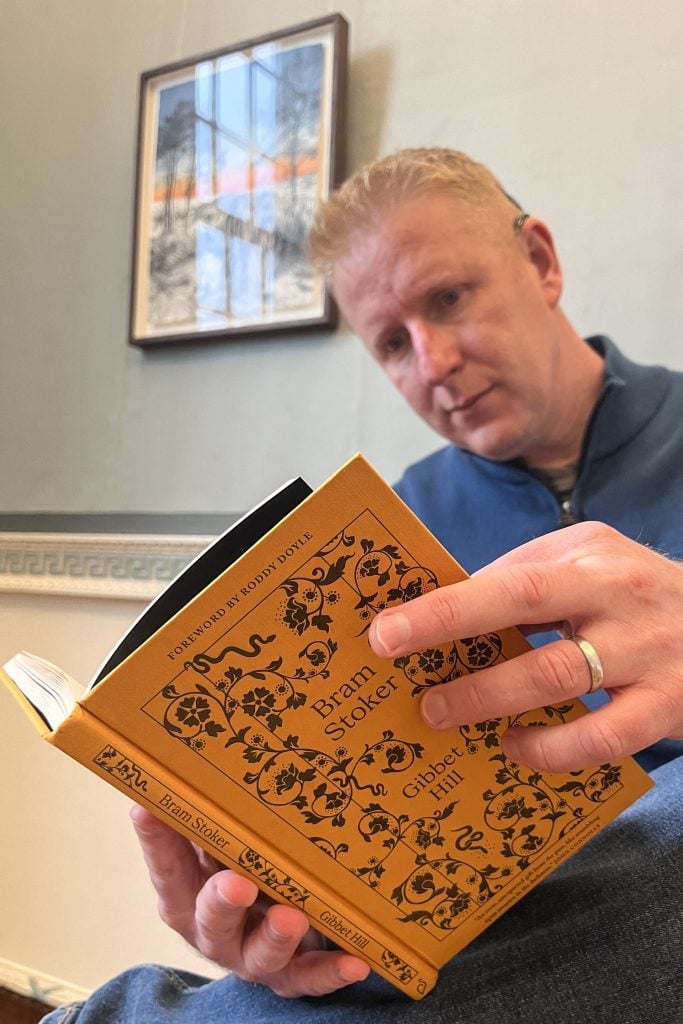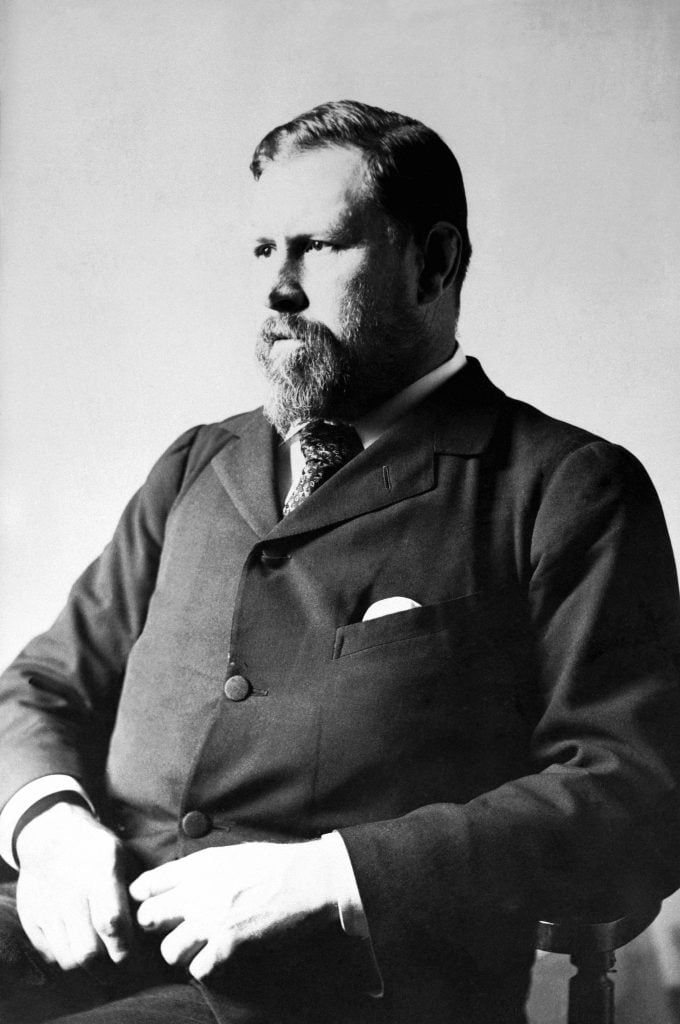Archaeology & History
Amateur Sleuth Uncovers Bram Stoker’s Lost Supernatural Tale—A Precursor to ‘Dracula’?
Stoker's 'Gibbet Hill' is a tale involving ritual and the supernatural.

Last year, Brian Cleary, a Dublin pharmacist, was taking time off from work by browsing the archives at the National Library of Ireland when he made an extraordinary discovery: a completely forgotten short story by Bram Stoker, author of the classic gothic novel Dracula.
Titled Gibbet Hill, Cleary found a reference to the story in an 1891 New Year’s Day promotional advertisement in the Dublin Daily Express, a long-shuttered Irish newspaper. He then hunted down the original section in which the story had appeared two weeks earlier on December 17, 1890.

Brian Cleary with the newly published book, Gibbet Hill, by Bram Stoker in Dublin, 2024. Photo: Peter Murphy / AFP via Getty Images.
What Cleary, a long-time Stoker enthusiast, found was an unnerving tale involving the supernatural. Further research into Gibbet Hill showed the story was absent from Stoker’s archival papers, hadn’t been referenced by scholars, and was long out of print. “I was just astounded, flabbergasted,” Cleary told the AFP news agency in an interview. “I sat looking at the screen wondering, am I the only living person who had read it?”
After sharing his discovery with the library’s director Audrey Whitty, who called it “astonishing amateur detective work”, Cleary contacted Stoker’s biographer Paul Murray, who confirmed that Gibbet Hill had indeed disappeared for more than a century.

Bram Stoker, ca. 1900. Photo: Bettmann / Getty Images.
Gibbet Hill takes place in Surrey, England, and follows a young man as he comes across three unsettling children who perform a ritual that lands him in a threatening situation. The man passes out and when he wakes up alone, his future seems uncertain.
The work was published seven years before Dracula and Murray sees it as something of a precursor. “It’s a classic Stoker story,” he said. “The struggle between good and evil, evil which crops up in exotic and unexplained ways.” The exotic, in part, refers to a societal unease that was building as the British Empire weakened, nurturing a fear of foreigners.
These through lines of anxiety and the supernatural similarly run through the Irish author’s other gothic works—from 1875’s The Primrose Path to 1903’s The Jewel of Seven Stars. But it is his 1897 novel based on Vlad the Impaler that has sealed his legacy, the book having been adapted into countless plays and films. It remains one of the most renowned works in English literature.
For Cleary, there has been a further personal dimension to his discovery. He found the story after suddenly losing his hearing in one ear. As he later learned, Stoker’s family had a history of deafness and Bram’s mother, Charlotte, was an early campaigner for the deaf.
The reissuing of Gibbet Hill will take place at Dublin’s Bram Stoker Festival, which takes place this year between October 25 and 28. The book’s proceeds will go towards the Charlotte Stoker Fund at the Rotunda Foundation, which is associated with the hospital where Cleary works, and will fund research into acquired deafness in newborn babies.





